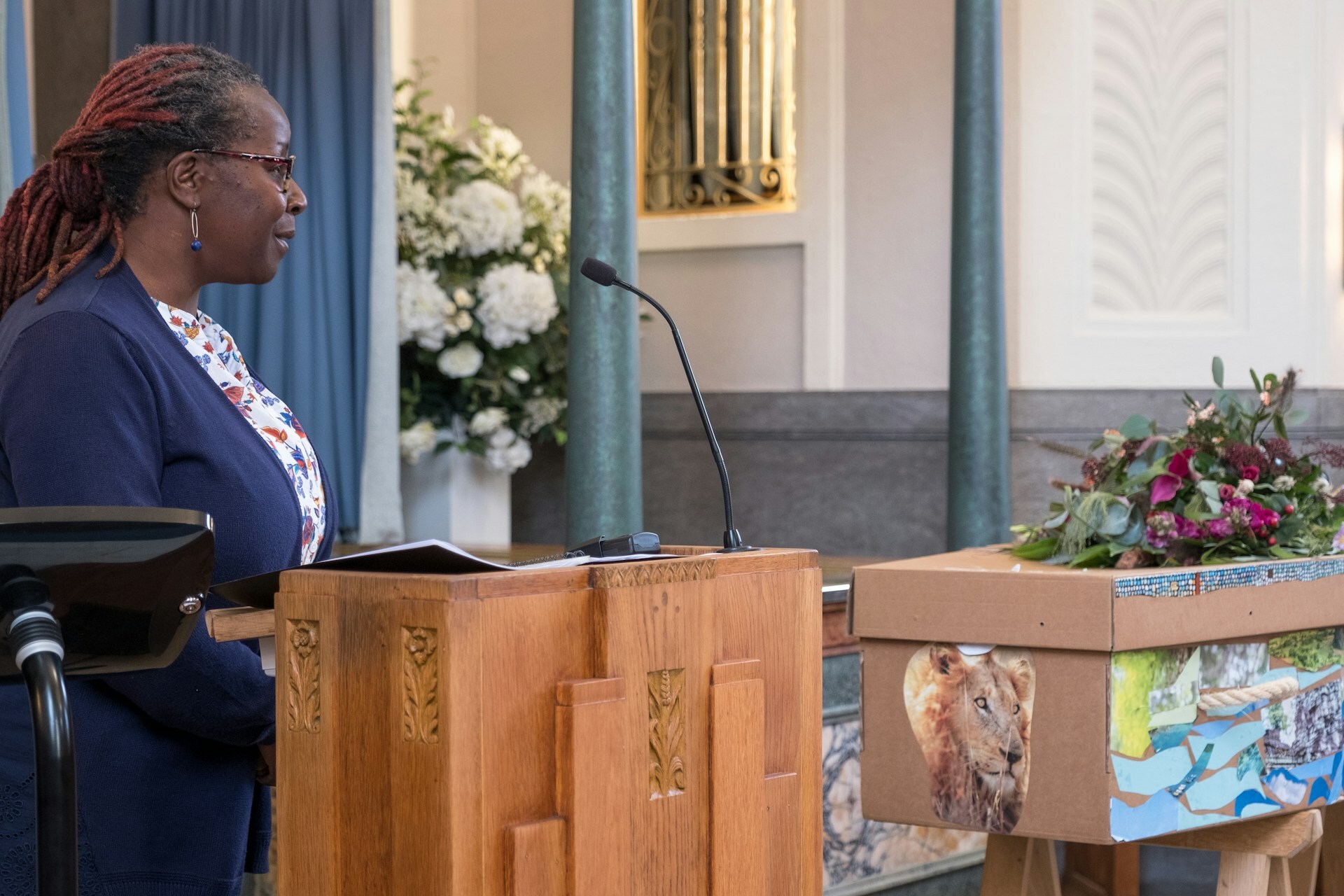Funeral Celebrants in the UK: Your Comprehensive Guide to Personalised Farewells
Dec 1, 2023
What Does a Funeral Celebrant Do?
Funeral celebrants in the UK offer a wide range of services tailored to their clients' wishes and values. Some common services provided by most funeral celebrants include:
Meeting with the Family: The initial step involves meeting with the family to discuss the life and preferences of the deceased. Celebrants inquire about the person's interests, values, and family preferences for the funeral ceremony.
Crafting a Ceremony: Once the celebrant has a comprehensive understanding of the deceased's life, they create a ceremony that reflects their personality and beliefs. The ceremony typically incorporates readings, music, and poems, and may involve family members sharing memories of the departed.
Leading the Ceremony: On the day of the funeral, the celebrant guides the ceremony, welcoming guests, addressing their questions, and delivering readings and the eulogy.
Providing Support: Funeral celebrants also offer support to the family during the planning process and on the day of the funeral. They provide guidance, comfort, and strength during a difficult time.
How Do Funeral Celebrants Differ from Religious Officiants?
In the UK, there are two types of funeral celebrants, each with varying levels of religious content they can incorporate into the services:
Humanist Celebrant: Humanist celebrants are a popular choice today. They can officiate over non-traditional ceremonies, but they include limited religious elements. These celebrants create non-religious, highly personal celebrations of life with readings, music, and no religious prayers or readings.
Civil Celebrant: Civil funeral celebrants can add spiritual or religious elements to a service, offering more flexibility than humanist celebrants. However, they are not officially affiliated with any specific religion or church and can't conduct services in denominational venues like churches.
How Much Does a Funeral Celebrant Cost in the UK?
The cost of a funeral celebrant in the UK typically ranges from £150 to £300. Celebrants often set their rates based on various factors, including the ceremony's location, complexity, the celebrant's experience, and additional expenses like travel or accommodation for distant ceremonies.
Choosing a Funeral Celebrant: What to Look For
When selecting a funeral celebrant, establish a personal and emotional connection with them. Consider these tips for choosing the right celebrant:
Seek Recommendations: Ask for referrals from friends, family, or religious leaders.
Online Research: Search online for celebrants in your area.
In-Person Meetings: Meet with potential celebrants to assess their compatibility with your family and your needs. Inquire about their experience, philosophy, values, and fees.
Writing Assistance: Discuss whether the celebrant can help you write the eulogy or provide feedback.
Trust Your Instincts: Choose a celebrant with whom you feel a strong connection and who can create a meaningful and memorable ceremony.
What Questions Will a Funeral Celebrant Ask at the Initial Meeting?
Funeral celebrants aim to celebrate the life of your loved one by creating an authentic and intimate portrayal. During the first meeting, they will establish a connection and gather crucial information. They may ask:
Details about your loved one's life, your memories, and their impact on your life and others.
Stories and anecdotes that define the person's character.
Personal preferences and insights that help create a meaningful and comforting service.
A celebrant's compassionate and empathetic approach allows you to remember your loved one, find closure, and share your memories with others.
Can a Funeral Celebrant Help with Funeral Planning?
Working with a qualified funeral celebrant can be invaluable during the stressful period between a loved one's passing and the funeral ceremony. Celebrants provide guidance in choosing readings, poems, and music, liaise with funeral directors, and keep you informed about the process. This support can free you to focus on other aspects of life and provide the space needed for grieving.
Examples of Celebrant-Led Funerals
Funeral celebrants can craft unique ceremonies that go beyond traditional or religious formats. Here are two examples:
Celebration of Life for a Nature Enthusiast: A humanist celebrant can lead a service at a woodland burial ground, with readings and blessings that honor the deceased's love for nature.
Celebration of Life for a Music Lover: A celebrant can organize a party at a music venue, paying tribute to the deceased's lifelong passion for music, featuring eulogies, favorite songs, and memories shared by guests.
Becoming a Funeral Celebrant in the UK
A career as a funeral celebrant can be fulfilling, providing support and celebrating the lives of the departed. Key qualities for a funeral celebrant include:
Effective communication and listening skills
Empathy for those in grief
Creativity for crafting personalised ceremonies
Organisational skills for managing multiple clients
Training courses for funeral celebrants are available in the UK, such as the Level 3 Certificate and Diploma in Celebrancy. Organisations like the United Kingdom Society of Celebrants, Humanists UK, and Civil Ceremonies offer training. Course costs vary, depending on the type of training, ranging from £495 for online courses to £3,000 for full qualifications.
Should You Book a Celebrant?
While there's no obligation to hire a celebrant, many find their support invaluable during the challenging task of planning a funeral. Celebrants offer expertise and an in-depth understanding of the industry, which can make a significant difference during a time of loss. Ultimately, the choice of whether to book a celebrant is a personal one, influenced by your family's wishes and needs.
Brandon Pazitka
Co-founder and CEO Timist
